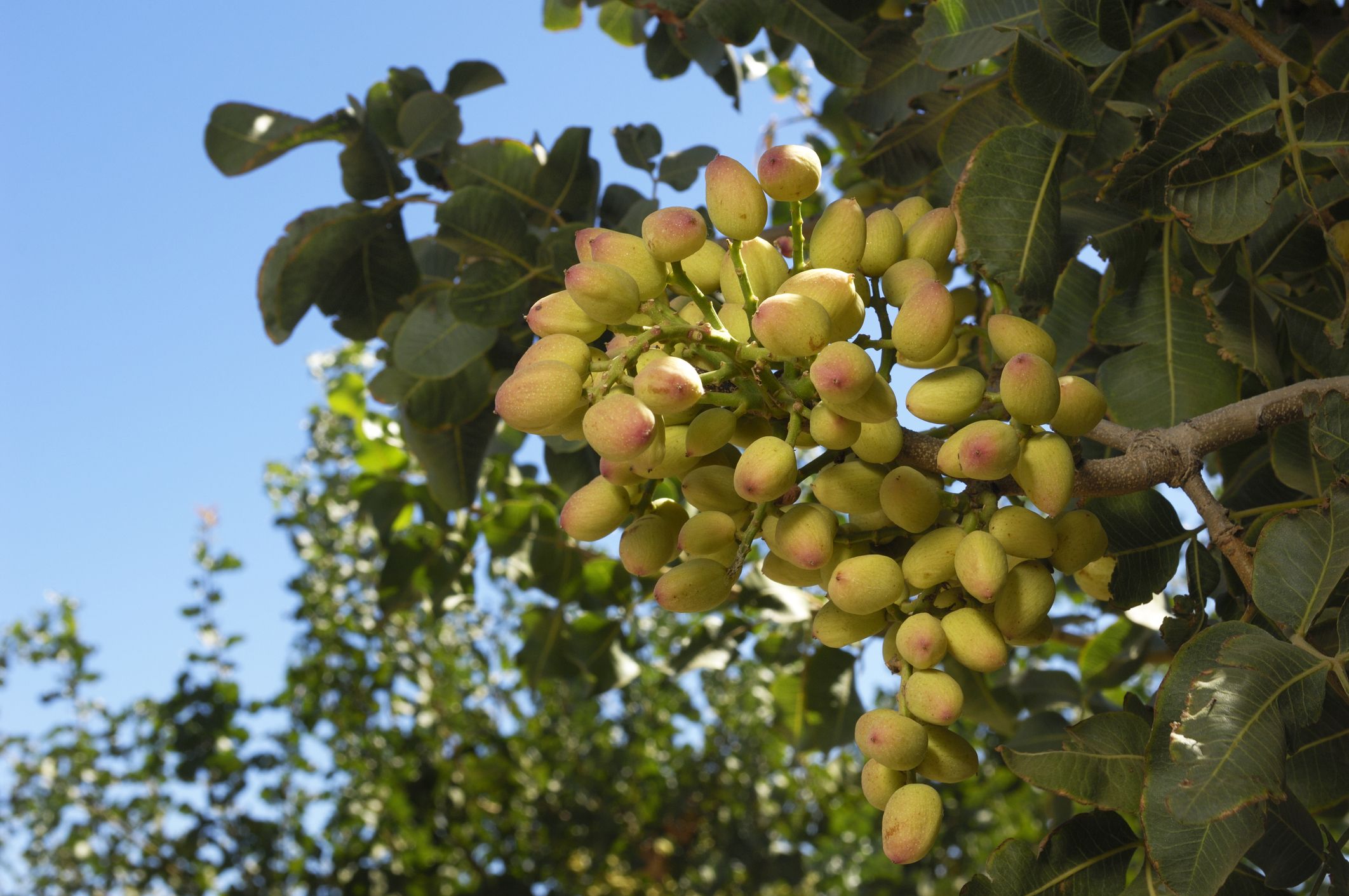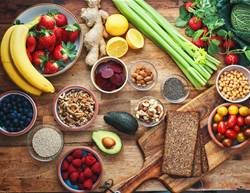When it comes to nuts, pistachios are often overlooked—even though they are tiny nutritional goldmines. “These little morsels are rich in fibre, heart-healthy fats, and are a good source of satiating protein,” says nutritionist and author Maya Feller.
1. Pistachios are packed with nutrients.
“Pistachios are nutrition powerhouses loaded with antioxidants that help to minimise free radical and combat oxidative stress in the body,” says Feller. “They also contain an incredible amount of vitamin B6, whose properties support healthy brain development and immune and nervous system functions.” But that’s not all. “A pistachio is a pretty cool nut,” says sports dietitian Becci Twombley. “It has every essential nutrient, except for vitamin C. Pistachios are high in omega-three fatty acids and they have three different types of antioxidants. They also have protein, healthy fats, good carbohydrates, fibre, and vitamin A. The amount of nutrition that's contained in just one pistachio is really impressive.”
2. The protein in pistachios is key.
It’s helpful to know that one serving of pistachios is 28 grams or about 49 nuts. That might sound like a lot, but they’re pretty small without their shells. “Pistachios offer 6 grams of plant-based protein per serving and help fuel your body with essential amino acids,” says Feller. “As one of the highest-protein snack nuts, pistachios are an excellent addition to a well-balanced pattern of eating.” This means they can be especially helpful for vegetarians or people trying to cut back on the protein they get from animal sources.
3. Fibre gives pistachios superpowers.
“Pistachios are rich in fibre, which research shows encourages stable blood glucose levels and digestive regularity,” says Feller. One serving contains 3 grams of fibre. “The nuts act as a prebiotic and provide nutrients for good bacteria located in the gut microbiome, which is essential for gut and overall health,” adds Feller. Plus, high-fibre foods help you feel full so you’re less likely to reach for less nutritious foods.
4. Pistachios are a boon for your heart.
“Studies show that including pistachios in your everyday nutrition plan can be beneficial to cardiovascular health and decrease associated disease risk factors,” says Feller. “Nearly 90% of the fats found in pistachios fall under the better-for-you mono- and polyunsaturated types, which have been shown to have positive effects on LDL (“bad”) cholesterol and in fact decrease their levels.” On top of that, Twombley notes that research shows pistachios can support blood flow and blood pressure.
5. Pistachios may also lower inflammation.
It all comes down the high polyphenol content of the nuts. “Inflammation is the cause of just about every disease,” explains Twombley. “A lot of the time inflammation—especially in heart disease—is measured by the amount of something called interleukin six in your blood, and there's a direct relationship between polyphenol intake to lower that heart risk.”

6. Raw pistachios are minimally processed.
Good news if you're trying to cut down on the processed foods that you eat: "Pistachios are probably one of the most minimally processed foods that exist,” says Twombley. “Nature cracks them open on the tree and then they have this really cool machine that just goes on the base of the tree with a big net/shield kind of a thing and then shakes the tree and all the kernels fall down into the container. It gets sent to a drying facility and then roasting. That's it. No human hands touch it during the processing.”
How to pick packaged pistachios:
You’ll find an array of pistachios on store shelves, and they’re all pretty tasty. “They can be enjoyed raw, roasted, shelled, or flavoured,” says Feller. She loves ones that are spiced with chili lime, tamari, or cumin and black pepper. “I do check the sodium to make sure that it's on the lower end so under 5% of the daily value for sodium,” adds Feller. “If you have the time, purchasing raw pistachios and roasting/flavouring them at home can aid in monitoring sodium intake as well.” You'll also want to steer clear of honey-roasted options if you're watching your sugar intake.
How to add pistachios to your diet:
While perfectly tasty on their own, these nuts are surprisingly versatile. Try some of these strategies for incorporating pistachios into your meal plan.
- Use as a topper for rice, salads, or desserts, suggests Feller.
- Mix into granola or smoothies.
- Crush and add to your favourite energy ball recipe.
- Blend into nut butter.
- “We incorporate them a lot into our breading for meats,” says Twombley. “Even something like chicken can become a lot more nutrient-dense if when you bread it you incorporate crushed pistachios in there.”



.jpg&h=90&w=90&c=1&s=1)






